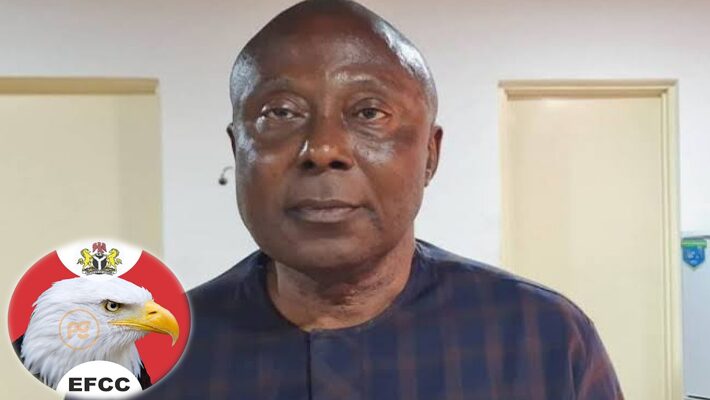- Stock Market: Investors Lose N624.4bn in One Week
Investors in the equities market of the Nigerian Stock Exchange lost a total of N624.4bn last week, with the year-to-date loss expanding to 16.3 per cent.
The market capitalisation, which stood at N12.426tn on September 7, 2018, dropped to N11.802tn at the close of trading last Friday, while the NSE All-Share Index shed 502 basis points to 32,327.59bps after red closes in four out of five sessions during the week.
A total turnover of 960.940 million shares worth N18.329bn were traded by investors on the floor of the Exchange during the week in 16,896 deals, in contrast to a total of 892.725 million shares valued at N13.075bn that exchanged hands in 15,607 deals the previous week.
The financial services industry (measured by volume) led the activity chart with 774.087 million shares valued at N9.244bn traded in 10,637 deals, thus contributing 80.56 per cent and 50.44 per cent to the total equity turnover volume and value, respectively.
The conglomerates industry followed with 54.805 million shares worth N80.062m in 740 deals.
The third place was occupied by the consumer goods industry with a turnover of 43.013 million shares worth N3.341bn in 2,468 deals. Despite a 10 per cent surge in Nigerian Breweries Plc at week close, the consumer goods sector shed 537 bps week on week amid weightier losses in the largest stock in the sector, Nestlé Nigeria Plc.
The industrial goods and banking sectors recorded the heaviest hits as heavyweights Dangote Cement Plc, Lafarge Africa Plc, United Bank for Africa Plc and Zenith Bank Plc all touched new lows.
The oil and gas sector was the best of a bad bunch as negative activity from Forte Oil Plc and Conoil Plc weighed the sector down.
Trading in the top three equities namely, namely Guaranty Trust Bank Plc, Zenith Bank and Access Bank Plc (measured by volume), accounted for 329.986 million shares worth N7.573bn in 3,871 deals, contributing 34.34 per cent and 41.32 per cent to the total equity turnover volume and value, respectively.
Analysts at Vetiva Capital Management Limited said recent developments surrounding regulatory fines and penalties appeared to have worsened investor sentiment.
According to them, though other African markets appear to have also suffered from weak investor sentiment (Kenya: -4.8 per cent and South Africa: -4.9 per cent), Nigeria has recorded the most sizeable sell-offs.
They said, “With uncertainty surrounding the upcoming elections and other external developments that have seemingly increased the allure of foreign assets, the Nigerian equity market has been on a southward trajectory for most of 2018.
“While the market pull-back began since the end of January, losses on the exchange appear to have intensified in recent time, with August recording the second largest month-on-month loss so far this year at 5.9 per cent and month-to-date losses in September already topping this figure at 7.2 per cent.”
They added that investor apathy for Nigerian securities was expected to keep the downward pressure on stock prices for the rest of 2018.
Analysts at Afrinvest Securities Limited described the Nigerian equities market as the worst-performing globally in the last few months as the rout on the market started at the tail end of January, making the market lose 27.3 per cent.
They said, “With no fundamental driver to boost investor sentiment on the horizon, we believe the current weak performance will persist, although we expect speculative trading to shape activities pending the completion of the general elections in 2019.”
They added that a technical analysis of the market made a case for a rebound this week, with the Relative Strength Index currently at 20.5, which was in the oversold region.


 Naira4 weeks ago
Naira4 weeks ago
 News3 weeks ago
News3 weeks ago
 Education4 weeks ago
Education4 weeks ago
 Social Media4 weeks ago
Social Media4 weeks ago
 Economy4 weeks ago
Economy4 weeks ago
 Investment4 weeks ago
Investment4 weeks ago
 Dividends4 weeks ago
Dividends4 weeks ago
 Business3 weeks ago
Business3 weeks ago




























